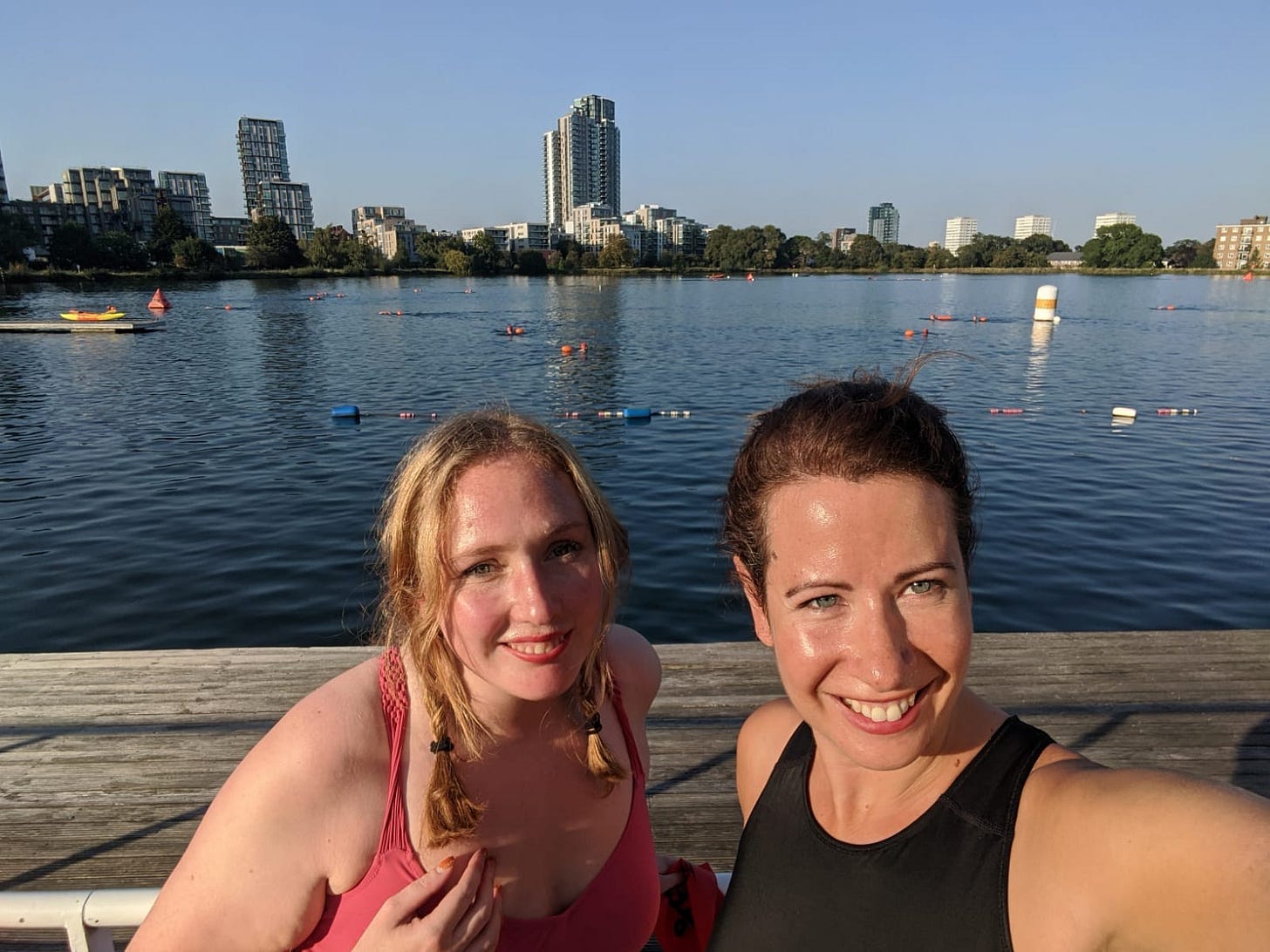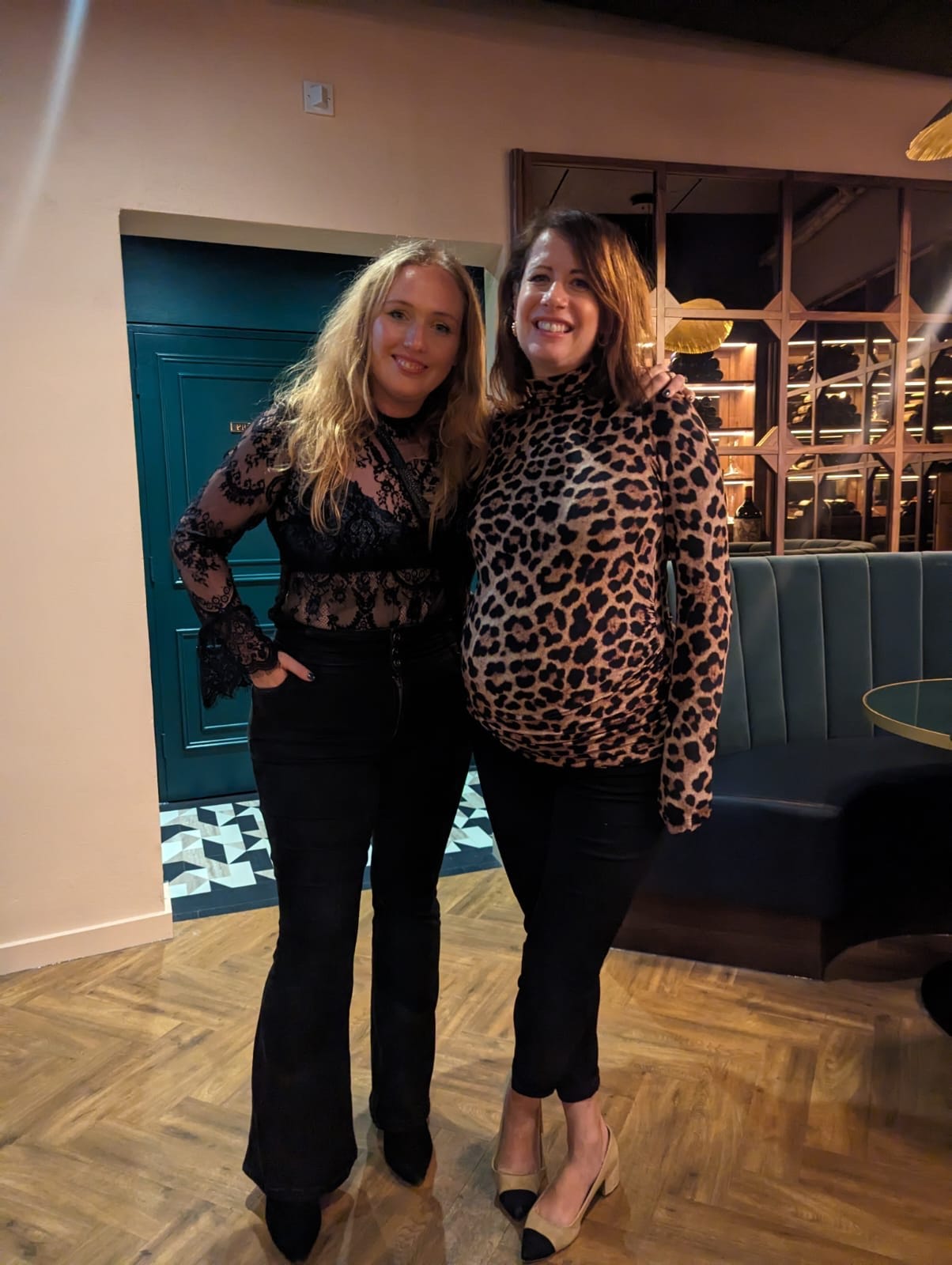The moment she told me she was pregnant, I felt the fear. We were sat on a cold park bench, cardboard boxes of lunch in our laps, pigeons by our feet.
“Are you okay with this?” she asked, sensing as good friends do, both my delight and unease.
’Of course!’ I insisted and we hugged. And with that our time was up. Once again, we’d tried to squeeze the biggest of conversations into the smallest of time frames.
This was typical for me and Amy: after all our friendship was born on borrowed time. We’d squeeze in a ‘speed’ wine after work, go for a walk around the park, or chat over sandwich wrappers at our desks. We were colleagues on the same glossy magazine; then we were friendly colleagues and then finally, we were friends.
When we first met she was going through a life exploding break-up, one made all-the-more painful by her desire to be a mother and the fear she might spend her most fertile years single. I was recently married to a man I had known for half my life and with whom starting a family seemed next in line. Our life circumstances couldn’t have been more different and yet we were drawn together.
I’d stood by Amy’s side as she repaired herself, starting dating again and then, some years later, met and fell in love with a man who wanted a family just as much as she did. Pretty soon, they were pregnant - and I was devastated that I was about to lose one of the most precious relationships I had ever known.
Let me explain: my family is a small one: growing up it was just me, my sister, my mum, dad and grandma. Then aged 19, I lost my mum suddenly and unexpectedly. My grandma went a few years later. My sister lives on the other side of the country. So does my dad. And so in London, miles away from everyone I loved, I created a new family out of my friends.
These people knew me and my life intimately. And I in turn knew theirs. We were there for one another though the big and the small stuff: the heartbreaks, the job losses, the weddings, the new homes- knit together by lives that all seemed headed in the same direction. Until that is, the babies arrived. And with their arrival came my own confusion.
I was 24 the first time one of my friends became pregnant; ten years later I started trying for myself. But there was a blockage within me-an emotional one, and, as it turned out, a physical one too.
Firstly I had little interest in the whole process of baby making. I couldn’t bring myself to do all the things I was meant to: pop thermometers in my mouth, chart dates in the diary, seduce my husband at all costs…Then the doctor found a cyst. It was 13cm and growing- a mass made up of my own teeth and skin cells, gripping itself tight against one of my ovaries.
It would have to be operated on. Mid-pandemic, masked-up and alone I signed the form saying that yes, I was aware I could go to sleep, be cut open and wake up without the cyst… but also without one of my ovaries. I was told this wouldn’t necessarily impact my fertility and that I wasn’t to worry about that. But I wasn’t worried about not having a baby; I was worried that if I didn’t, I’d lose the family I’d created.
The truth is, I’ve never been particularly good with pregnancy. I get tongue-tied around pregnant people, fearing I might say the wrong thing. I’d watch on as if other women had a language I was not versed in, asking the ‘right’ questions on due dates and morning sickness, while I, a naturally chatty person, found myself silent with anxiety. I’m also not particularly comfortable around children. I find their company - at least until they reach a conversational age, dull and repetitive. But, as I came to grips with my child-free status, what I found most uncomfortable was how they created a chasm (imaginary, as it turned out) between me -a childfree woman and them, mothers of one, two, even three children. Their worries and joys no longer seemed to chime with mine. Once friends started families, conversations with even my closet girlfriends suddenly felt odd and stilted. Where once we’d told each other everything, now I was struggling to find the right questions to ask or the best way to support them. But most of all, I began to wonder where I fitted into their lives. Would I still have a seat at their table? With their new families, did they still consider me a sister? Or was I about to learn that blood really is thicker than water?
Of course, I never articulated any of this. Instead, I filled my life with new, younger friends and my diary with nights out for the young and childfree. I picked up party pals in clubs and invited younger colleagues out for drinks. One of these new(er) friends was Amy who, during the seven years we have known each other, was largely single and always up for a night out. We would get dressed-up, drink champagne and chuckle as we asked men what their favourite pasta shape was. We had a lot of <fun> but over time, our friendship became more than that; she was someone I came to rely on. Another member of my rag-tag family of friends.
After Amy announced her pregnancy, and began the familiar path of scans, morning sickness, learning she was having a boy, I began to slip back into old patterns. Party invites came through, things we’d normally go to together, and I’d scan my Instagram DMs, wondering who could go in her place. I went for after-work drinks with people I barely knew and tried to vodka-shot my way out of the loneliness I could feel coming my way. Months past, her baby grew and I realised I didn’t particularly want to find a new friend to ‘replace’ what we had once had. I wanted Amy.
And that’s when it hot me: it wasn’t children I was uncomfortable with, it was the uncomfortable truth that children represented, which is to say within the hierarchy of relationships: partners, parents, children… friends often come last. You can’t let children or partners down, but you can let friends down. You can shuffle friends to the edges when life gets too much.
But that’s also what makes friendships so special. I am not bound by blood, or legal documents, but instead by nothing other than love and loyalty. A love that is strengthened by its fragility, since friends can walk away at any time. The difference being that good friends don’t. Even when the shape of those friendships change over time. True friends, the ones that feel like family, stick it out no matter what.
I visited Amy a week before her baby was due. I was tired of squeezing big, conversations into harried scraps of time. So we sat and had the sort of conversation we had never had before, and indeed may not be possible for some time to come. We talked about what comes next for our friendship. Amy admitted there were parts of her old life she already knew she was going to miss. She worried that holding a baby at home could feel as lonely as I feared being alone at a bar without her would be. We nodded, we laughed and then, as we always did we hugged. Except this time before I left I took her wrist and placed a gold star friendship bracelet around it. She then took mine and did the same. Its signal: that true friendship can come with the guarantee of ‘forever’ – as long as we choose it to.
writes on Substack. You can also read an audio recording of Catriona and Amy in conversation about their friendship here.
Please feel free to join the discussion below about this subject. As ever this is a kind and welcoming community chat. Please help keep it this way.
Also remember that paid subscribers can pitch ideas like this one directly to me and will be paid for their work. Information is below.








